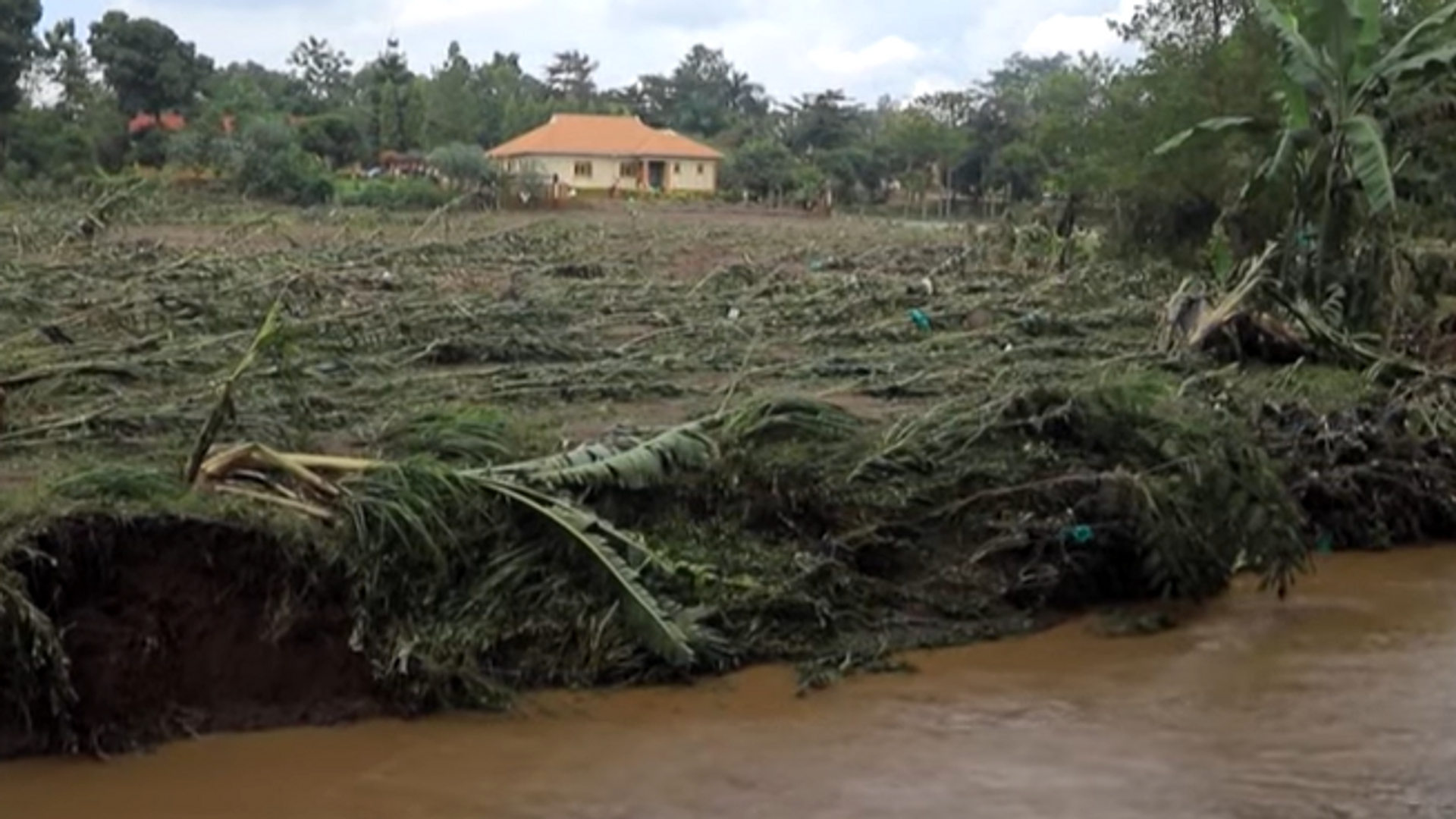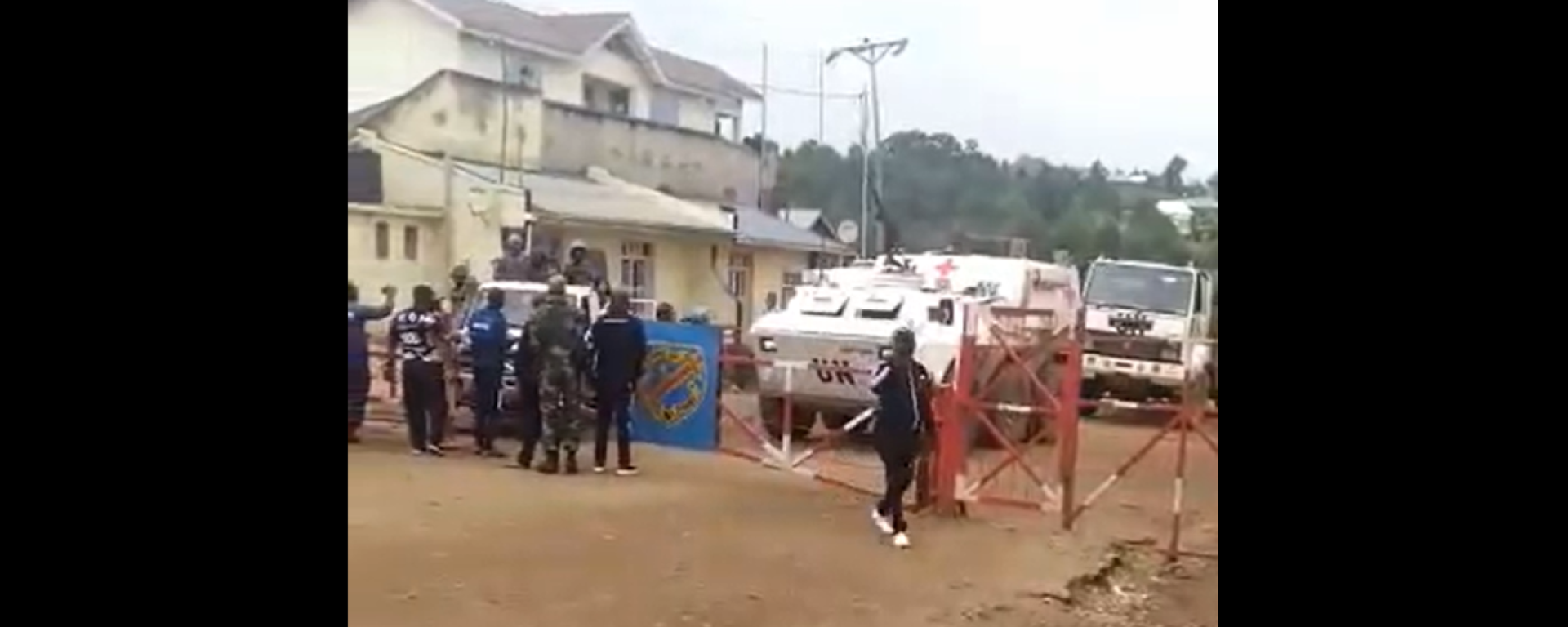https://sputnikglobe.com/20220805/at-least-24-people-dead-due-to-flash-flooding-in-uganda-1098130389.html
At Least 24 People Dead Due to Flash Flooding in Uganda
At Least 24 People Dead Due to Flash Flooding in Uganda
Sputnik International
Two rivers in eastern Uganda have burst through their banks after heavy rainfall hit the city of Mbale this weekend. Roughly 400,000 people have been left... 05.08.2022, Sputnik International
2022-08-05T03:36+0000
2022-08-05T03:36+0000
2023-02-14T08:48+0000
uganda
floods
https://cdn1.img.sputnikglobe.com/img/07e6/08/05/1098130493_86:0:740:368_1920x0_80_0_0_088b7acb7b1f24d889fc9406bd4406ac.png
Edward Simiyu of the NGO Mercy Corps Uganda cited climate change as a contributing factor to the extreme weather. Flooding in the area of Mbale has increased over the past five years, with a muddy landslide destroying a school in Uganda in 2018, killing dozens of people.“The situation is very serious,” said Simiyu. “A lot of medical teams are needed on the ground. Dead bodies are being recovered, and more and more people are injured.”At least three health facilities have been damaged by the flash flooding, with injured people having to travel up to 60 miles to reach the nearest hospital. Attempts to rescue those in the city of Mbale have also been delayed by the severe rainfall.Uganda’s government has sent out emergency supplies and is also working alongside humanitarian aid agencies to try and supply shelter for those left displaced by the onslaught of flooding; they are, however, struggling to do so. More rainfall is also predicted to come over the next month, meaning rescue and recovery goals for the village may be hampered.“Many have lost everything and have had barely anything to eat over the last few days. There are small children who don’t have a change of clothes and many families are still looking for their loved ones,” said Joseph Ssenkumba, of the Association of Ambulance Professionals Uganda.The government has been attempting to move those from the areas around Mount Elgon which have been severely struck. Their goal is to relocate 100,000 people; thus far they have relocated just 2,500.
https://sputnikglobe.com/20220801/watch-un-monusco-peacekeepers-open-fire-on-uganda-congo-border-crossing-killing-two-1098014019.html
uganda
Sputnik International
feedback@sputniknews.com
+74956456601
MIA „Rosiya Segodnya“
2022
Mary Manley
https://cdn1.img.sputnikglobe.com/img/07e6/01/0b/1092187887_0:0:2048:2049_100x100_80_0_0_0c2cc4c84f89aff034cc55bb01fb6697.jpg
Mary Manley
https://cdn1.img.sputnikglobe.com/img/07e6/01/0b/1092187887_0:0:2048:2049_100x100_80_0_0_0c2cc4c84f89aff034cc55bb01fb6697.jpg
News
en_EN
Sputnik International
feedback@sputniknews.com
+74956456601
MIA „Rosiya Segodnya“
Sputnik International
feedback@sputniknews.com
+74956456601
MIA „Rosiya Segodnya“
Mary Manley
https://cdn1.img.sputnikglobe.com/img/07e6/01/0b/1092187887_0:0:2048:2049_100x100_80_0_0_0c2cc4c84f89aff034cc55bb01fb6697.jpg
uganda, floods
At Least 24 People Dead Due to Flash Flooding in Uganda
03:36 GMT 05.08.2022 (Updated: 08:48 GMT 14.02.2023) Two rivers in eastern Uganda have burst through their banks after heavy rainfall hit the city of Mbale this weekend. Roughly 400,000 people have been left without clean water following the catastrophe, 5,000 acres of crops have also been destroyed. At least 24 people have been reported dead, with that death toll likely to rise.
Edward Simiyu of the NGO Mercy Corps Uganda cited climate change as a contributing factor to the extreme weather. Flooding in the area of Mbale has increased over the past five years, with a muddy landslide destroying a school in
Uganda in 2018, killing dozens of people.
“The situation is very serious,” said Simiyu. “A lot of medical teams are needed on the ground. Dead bodies are being recovered, and more and more people are injured.”
“We believe that this is being fueled by climate change because we’ve had heavy rains before but not to this scale,”
Simiyu added.
At least three health facilities have been damaged by the flash flooding, with injured people having to travel up to 60 miles to reach the nearest hospital. Attempts to rescue those in the city of Mbale have also been delayed by the severe rainfall.
Uganda’s government has sent out emergency supplies and is also working alongside humanitarian aid agencies to try and supply shelter for those left displaced by the onslaught of flooding; they are, however, struggling to do so. More rainfall is also predicted to come over the next month, meaning rescue and recovery goals for the village may be hampered.
“Many have lost everything and have had barely anything to eat over the last few days. There are small children who don’t have a change of clothes and many families are still looking for their loved ones,” said Joseph Ssenkumba, of the Association of Ambulance Professionals Uganda.
The government has been attempting to move those from the areas around Mount Elgon which have been severely struck. Their goal is to relocate 100,000 people; thus far they have relocated just 2,500.
“The long-term solution is to protect the environment, stay clear of wetlands, riverbanks and avoid destroying river pathways,” said Julius Mucunguzi, the Head of Communications for Uganda’s Prime Minister. “Climate change is evident. You can no longer predict when the rains will come and how intense they will be.”





